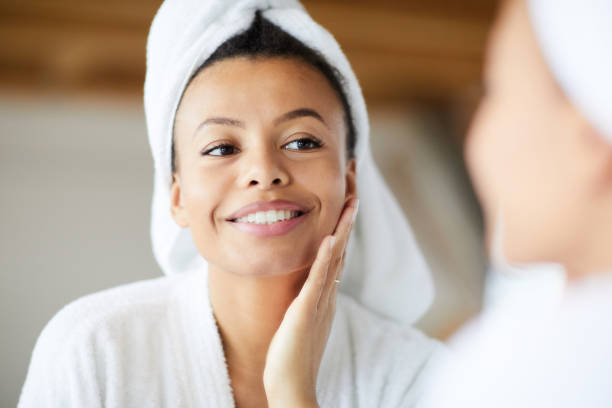
Our skin is often taken for granted, yet it is the body’s largest organ, covering approximately 15 to 20 square feet. Some estimates even suggest that when factoring in hair follicles and sweat ducts, its surface area could be ten times greater. Serving as our first line of defense, our skin ensures that the external environment stays out while keeping our internal systems intact.

America’s Obsession with Cleanliness
In the United States, hygiene has transformed into an expansive industry, with the beauty and personal care products market surpassing $100 billion in 2024. The desire to remain clean is deeply ingrained in American culture, yet the effectiveness and necessity of many personal care practices remain debatable.
Dr. James Hamblin, a preventive medicine expert and former writer for The Atlantic, began questioning the role of personal hygiene in health. In an interview with CNN’s Dr. Sanjay Gupta, Hamblin admitted that the aisles of shampoos and soaps in pharmacies made him wonder: Is all of this really necessary? In a bold experiment, he stopped showering in the conventional sense for nearly five years, meticulously documenting his findings in his 2020 book, Clean: The New Science of Skin.

The Great Shower Debate
Hamblin’s journey was not about abandoning cleanliness altogether but rather exploring alternative regimens to maintain hygiene without excessive product use. He found that many people equate personal care with disease prevention, but in reality, most products simply serve aesthetic and social purposes rather than medical ones.
“For many people, washing up is about feeling refreshed, not necessarily about health,” Hamblin explained. He pointed out that soap primarily serves to break up oily substances, but the mechanical action of rubbing hands under water is often more effective than the soap itself.
The Role of the Skin Microbiome
Much like the gut microbiome, the skin hosts a diverse range of microbes that play a crucial role in our overall health. Hamblin observed a growing interest in probiotics for gut health and predicted that similar attention would eventually turn to the skin microbiome.
“Your skin naturally secretes oils and chemicals that interact with its microbiome, creating a balance that commercial soaps and harsh products can disrupt,” he explained. Excessive washing can lead to conditions like eczema and acne, similar to how overuse of antibiotics can disturb gut flora.
Clean, but at What Cost?
Hamblin likened aggressive cleansing to deforestation—removing natural elements and disrupting a delicate ecosystem. While extreme hygiene is necessary in medical settings, daily life does not require the same level of sterilization.
Research is beginning to reveal that frequent exposure to water and chemical-based cleansers strips the skin of its protective oils. The pandemic initially reinforced the idea of aggressive hygiene, but as the crisis wanes, people are slowly shifting back to more balanced skincare habits.

The Marketing of Hygiene
Our perceptions of cleanliness are largely shaped by marketing. The personal care industry promotes the idea that frequent washing is essential for health, but in reality, it is largely a personal and cultural preference. Products are often similar in composition, differing mainly in branding and fragrances.
“If you’re not prone to skin issues and don’t care much about luxurious scents, the cheapest soap will likely serve the same purpose as a high-end product,” Hamblin noted.

The Future of Skin Care
While there is no single right way to maintain hygiene, Hamblin encourages people to critically assess their routines. Instead of blindly following marketing trends, individuals should consider what works best for their own skin. The rise of microbiome-friendly products suggests a shift toward a more holistic understanding of skincare.
As science advances, we may eventually rethink our obsession with extreme cleanliness and embrace a more natural, balanced approach—one that respects the intricate ecosystem of the skin we live in.




